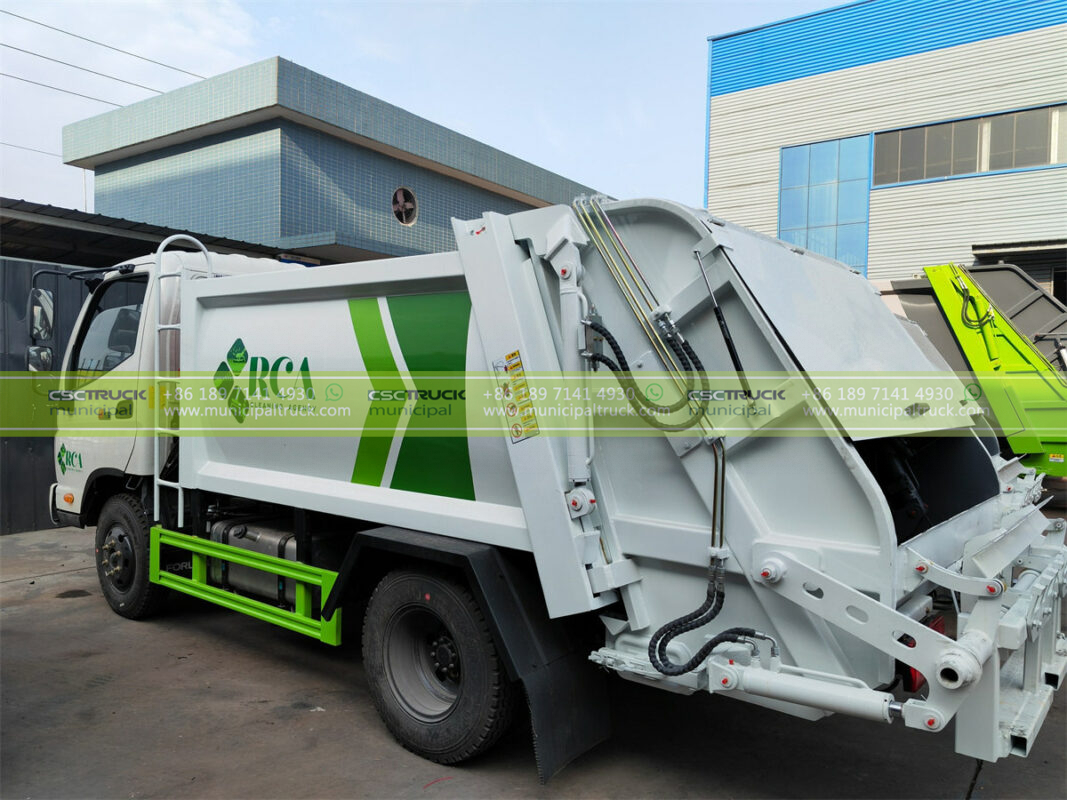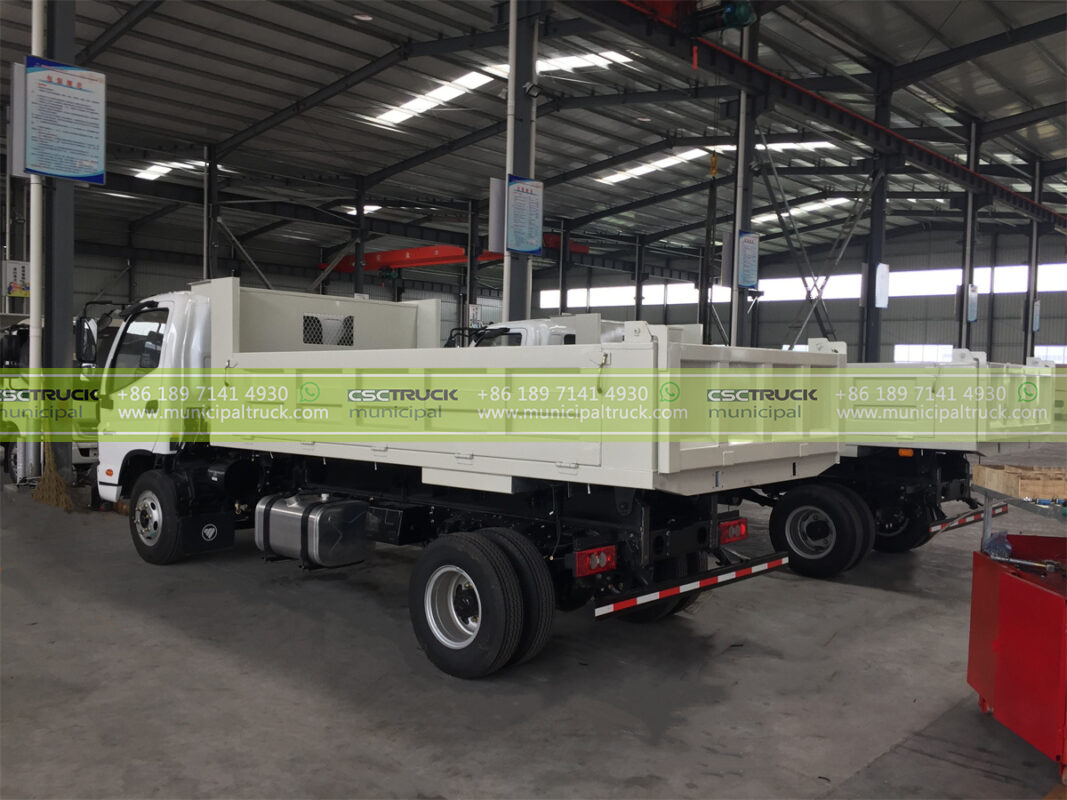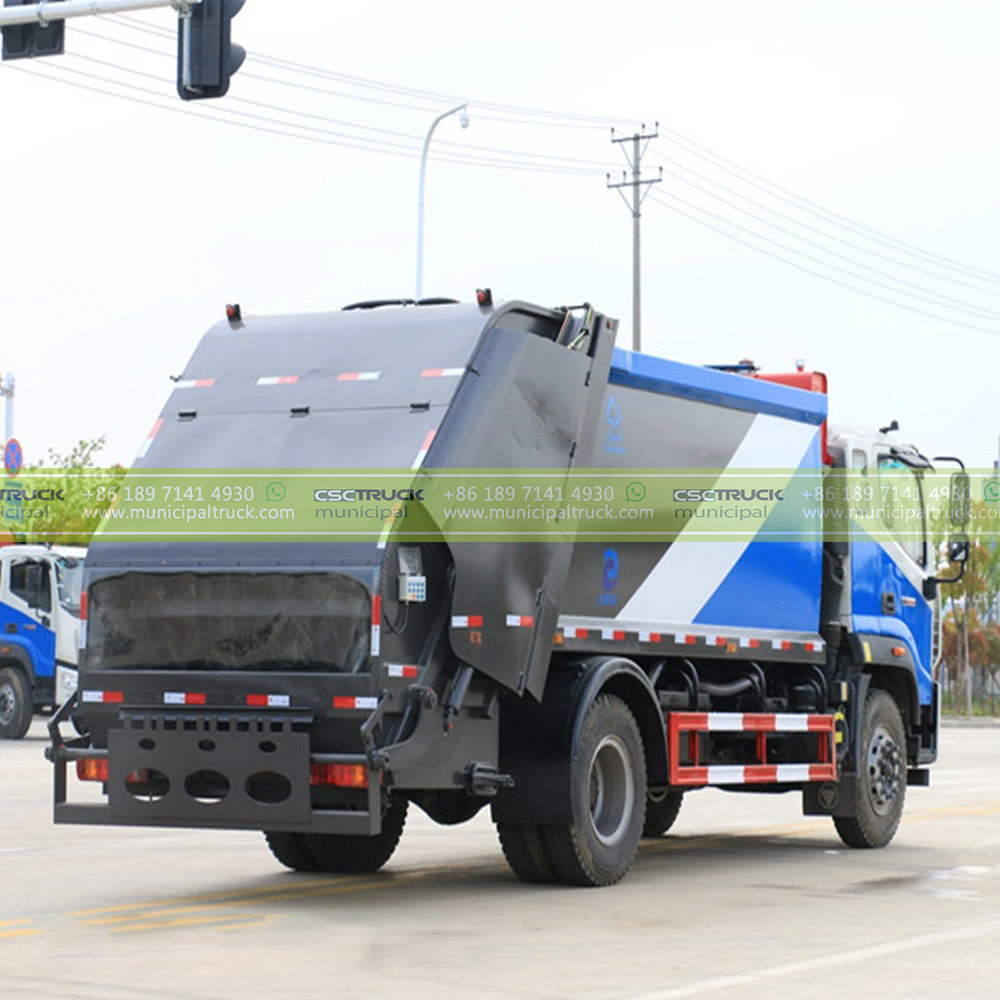In the world of waste management, garbage trucks play a crucial role in ensuring that waste is collected and disposed of in a timely and efficient manner. However, many operators often overlook a critical aspect that can directly influence both the efficiency and safety of their operations—garbage truck tires. Tires may seem like a simple part of the vehicle, but they are essential for the vehicle’s performance on the road, especially given the demanding nature of waste collection. In this post, we’ll explore how garbage truck tires impact various aspects of performance, from operational efficiency to driver safety.
1. Tire Types and Their Influence on Efficiency
When it comes to choosing garbage truck tires, the type of tire selected can make a significant difference in terms of efficiency. Different garbage trucks, such as compactor garbage trucks, rear loader garbage trucks, and side loader garbage trucks, all have unique operational demands that require specific tire characteristics. Tires are responsible for supporting the entire weight of the vehicle, including the load of waste being transported, which places extra pressure on the tires during operation.
Compactor Garbage Trucks and Load-Bearing Capacity
For a compactor garbage truck, which is designed to compress waste, the tires need to have a high load-bearing capacity. Compactor trucks often carry heavy, compressed waste loads, and tires that are not up to the task can lead to faster wear and tear. Having the right tires ensures that the vehicle can carry these loads safely without risking tire failure, which would result in costly downtime and delays.
Tire Pressure and Fuel Efficiency
Maintaining proper tire pressure is critical for any garbage truck, but it is especially important for skip loader garbage trucks, which carry varying waste loads. Under-inflated tires increase rolling resistance, which can drastically reduce fuel efficiency. Proper tire pressure ensures that the vehicle operates at optimal efficiency, reduces fuel consumption, and lowers operating costs. In contrast, over-inflated tires can wear out faster and compromise the safety of the truck.
Durability and Tread Design
The tread design and durability of tires are vital for rear loader garbage trucks and self tipping garbage trucks, which often travel through rough, uneven roads. Tires with an aggressive tread pattern provide better traction, improving performance on different surfaces. Durable tires are also less likely to suffer damage from debris or rough terrains, leading to fewer tire replacements and a more cost-effective operation.
2. Safety Considerations: Why Tires Matter for Garbage Trucks
Safety is an undeniable priority when operating garbage trucks. Tires play an integral role in ensuring the safety of the vehicle’s operation. A breakdown or tire failure can result in dangerous situations, especially for trucks operating in urban environments or busy streets. Whether it’s a hook loader garbage truck or a side loader garbage truck, ensuring that the tires are in top condition helps minimize the risk of accidents or unexpected breakdowns.
Traction and Control
For trucks like compactor garbage trucks, which often work in inclement weather conditions, having tires with excellent traction is key. Wet, slippery roads are a common challenge during waste collection. Tires that offer solid grip prevent slippage, giving drivers better control over their vehicle. Whether navigating steep inclines or turning sharp corners, tires with proper traction ensure that the vehicle remains stable, reducing the risk of rollovers or accidents.
Tire Blowouts and Vehicle Stability
A blowout or sudden tire failure can lead to a loss of control and vehicle instability. This is especially dangerous for skip loader garbage trucks, which may be carrying large, heavy loads. The impact of a tire blowout could cause the truck to veer off course, damaging infrastructure or causing harm to pedestrians. By investing in high-quality tires and conducting regular maintenance checks, operators can reduce the likelihood of tire blowouts, enhancing safety for both the driver and the public.
Braking Performance
The braking performance of a garbage truck is heavily influenced by the condition of its tires. Well-maintained tires with a healthy tread depth ensure that the truck’s brakes can perform at their best, helping the vehicle stop efficiently and safely. For rear loader garbage trucks, which often stop frequently on their collection routes, having tires that complement the braking system enhances the truck’s overall safety and performance.
3. Cost Implications of Tire Selection
The selection of garbage truck tires can have a profound impact on the overall cost-efficiency of waste management operations. From upfront tire costs to long-term maintenance and fuel savings, choosing the right tires is an investment that pays off in the long run.
Longer Lifespan and Reduced Maintenance
Investing in durable tires with a longer lifespan helps minimize the frequency of tire replacements, reducing overall operational costs. Self tipping garbage trucks, which are often used in construction or demolition sites, deal with heavy debris and rough terrain. Tires designed for such environments can withstand constant wear and tear, saving money on repairs and replacements over time.
Fuel Efficiency and Operational Costs
Fuel costs are one of the biggest expenses for waste management operations. Tires that are optimized for fuel efficiency can reduce the rolling resistance, which in turn reduces fuel consumption. This is particularly important for side loader garbage trucks, which often make multiple stops and cover extensive routes. Tires with low rolling resistance allow these trucks to use fuel more efficiently, cutting down on overall costs and increasing profitability.
Minimizing Downtime
A garbage truck’s downtime is directly tied to the condition of its tires. A hook loader garbage truck that suffers a tire failure during a busy route can experience significant delays, affecting productivity and delivery schedules. Regular tire maintenance and monitoring can prevent unexpected tire failures, ensuring that the truck operates without interruption. This reduces the loss of working hours, helping companies maintain an efficient and timely waste collection service.
4. Impact of Tire Technology on Performance
Advancements in tire technology have revolutionized the way garbage truck tires perform. New technologies are designed to improve the performance, safety, and environmental impact of tires. From improved tread designs to more sustainable materials, the latest innovations provide a wide range of benefits for waste management fleets.
Low Rolling Resistance Tires
Low rolling resistance tires are a technological advancement that improves fuel efficiency. These tires are designed to minimize the energy lost as the tire rolls, reducing fuel consumption and promoting environmental sustainability. For compactor garbage trucks, which often carry heavy loads, using low rolling resistance tires can significantly lower fuel costs and reduce the overall carbon footprint of the vehicle.
Run-Flat Tire Technology
Another advancement in garbage truck tire technology is run-flat tires. These tires are designed to continue operating even after suffering a puncture, allowing the vehicle to safely travel to a repair station without causing a breakdown or risk to the driver’s safety. For trucks like the skip loader garbage truck, which often operates in remote or industrial areas, run-flat tires are an excellent option to ensure continuous operation without the risk of being stranded due to tire issues.
Sustainable Tire Materials
The introduction of sustainable tire materials is another significant innovation in garbage truck tires. Manufacturers are now using eco-friendly rubber compounds and recycled materials to reduce the environmental impact of tire production. By selecting these environmentally-conscious tires, waste management companies can reduce their environmental footprint while still maintaining high performance and durability.
5. Tire Maintenance Practices for Optimal Performance
The performance and safety of garbage truck tires are heavily influenced by regular maintenance practices. Ensuring that tires are properly maintained can extend their lifespan, improve vehicle efficiency, and enhance safety on the road.
Routine Inspections
Regular tire inspections are essential for identifying any issues before they lead to serious problems. Drivers and fleet managers should check tires for uneven wear, damage, and proper inflation. For self tipping garbage trucks and rear loader garbage trucks, this is especially important as these vehicles often operate under heavy stress, which can cause faster wear if not properly monitored.
Tire Rotation
Tire rotation helps in distributing wear evenly across all tires, preventing premature wear on specific tires. For vehicles like hook loader garbage trucks that frequently carry heavy loads, rotating tires regularly ensures that all tires experience similar wear and tear, extending their lifespan and reducing replacement costs.
Balancing and Alignment
Ensuring that tires are properly balanced and aligned helps improve handling and reduce strain on the truck’s suspension system. Misaligned tires can cause uneven wear, which affects both safety and performance. For side loader garbage trucks and other collection vehicles, maintaining tire alignment can prevent accidents and ensure smoother operations.
Garbage truck tires are more than just components of a vehicle; they are pivotal to both efficiency and safety. Selecting the right tires and maintaining them properly ensures optimal performance, reduces operational costs, and enhances driver safety. By investing in high-quality tires and incorporating advanced tire technology, waste management fleets can run more smoothly, deliver better service, and avoid unnecessary downtime. Regular tire inspections, combined with the right tire types for each truck model, will keep these vital vehicles in top condition for years to come.









